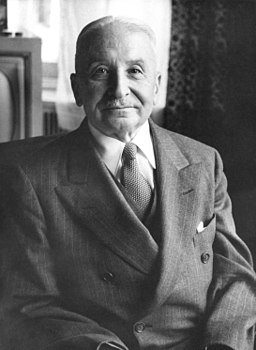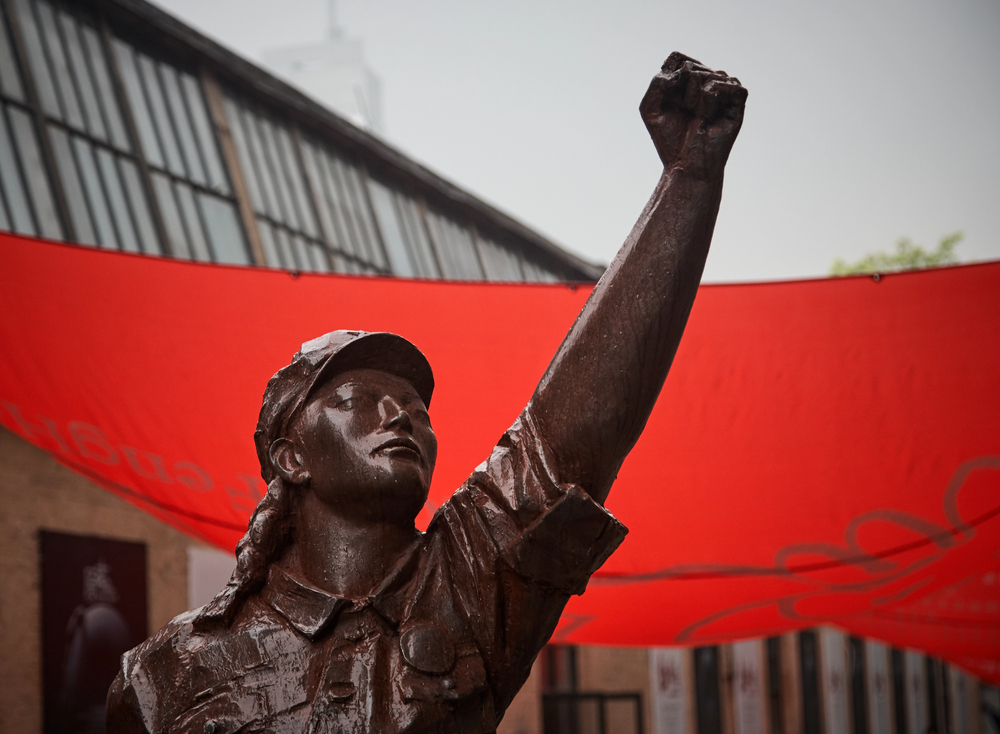The socialist calculation debate is firmly located within economics. But a look at philosophy can shed light on the kind of insight Ludwig von Mises gave us, and thereby sharpen our understanding of socialism and its problems. It shows what we can know about socialism through conceptual analysis, and what such analysis cannot tell us.
Philosophy makes clear that there are analytic truths, which describe that something is true by virtue of its meaning. To see what is analytically true, we need to engage in conceptual analysis, that is, to inquire into the concept and explore what it entails. Having done this, we can also look for implications of the concept. P implies q if it is impossible for p to be true and not q, viz., that q is not the case. So implications also show us what is necessarily true. But why all this fuss about analytic truths? They take on an exalted status because they are irrefutable and do not depend on empirical matters.
Let’s turn to socialism, which is an economic system. An analysis of the concept of socialism reveals that it is the economic system in which there is collective ownership of the means of production, which is equivalent to a system in which the collective (or someone else for this collective) plans the use of these means of production, i.e. a planned economy.
With this in mind, we can turn to prices. An analysis of the concept reveals that prices are exchange ratios (at least in the sense in which Mises understood the concept and considered it relevant). It follows that you cannot have prices (for the means of production) if you do not have exchange—for an exchange ratio only comes into being when exchange takes place. But if there is collective ownership, this implies that there can be no exchange, since exchange requires that there are at least two parties who each own some means of production. It follows that in socialism there can be no prices. For prices, to put the point positively, in terms of meaning, can only arise when people exchange, which requires that they have several property.

Consequently, it is an analytical insight into socialism and prices that there can be no prices in a socialist system. There is nothing empirical or speculative about this insight. Rather, an abstract analysis demonstrates that there can be no prices in socialism. To the extent that my analysis is correct, it follows that this is not open to debate – all that would be possible is to show that I have made a mistake in my analysis of the concepts. But if my analysis is accurate, it provides a value-free and irrefutable insight into what socialism and prices are, and what follows.
It is for this reason that Mises chided, among others, Karl Polanyi for his failure to see clearly what socialism is and for vacillating between a socialist and a syndicalist system. “The defect in [Polanyi’s] construction lies in the obscurity by which it seeks to avoid the core question: socialism or syndicalism?”, Mises wrote in response to Polanyi.
However, having thus established that there can be no prices in socialism, it is necessary to examine the consequence of such a lack of prices. This is not, or at least not purely, an analytical question. The consequences of the necessary absence of prices for the means of production in a planned economy depend on empirical conditions or factors. This much was already clear to Mises in his 1920 paper.
It would not be difficult for a farmer in economic isolation to come by a distinction between the expansion of pasture-farming and the development of activity in the hunting field. In such a case the processes of production involved are relatively short and the expense and income entailed can be easily gauged. But it is quite a different matter when … the conditions necessary for the success of the enterprises which are to be initiated are diverse, so that one cannot apply merely vague valuations, but requires rather more exact estimates and some judgment of the economic issues actually involved.
For what else does his acknowledgment that in simple circumstances the absence of prices has no or at most only negligible impact mean? Clearly, then, we need to examine empirical circumstances in order to assess the consequences of the absence of prices. For this purpose, the analytical power of the insight that there are no prices is not enough.
Max Molden is a PhD student at the University of Hamburg. He has worked with European Students for Liberty and Prometheus – Das Freiheitsinstitut. He regularly publishes at Der Freydenker.


READER COMMENTS
David Seltzer
Oct 30 2024 at 10:50am
Max: If socialism is the collective ownership of the means of production, it seems there would be monopoly pricing.
Max Molden
Oct 31 2024 at 6:35am
Thanks for your comment, David!
I believe that things are heavily intricate here. If we have one person who owns the means of production, we should expect her to wish (!) to embark upon monopoly pricing. If “the people” own them, it seems it doesn’t make sense as they too are the consumers: there can be little incentive to set monopoly prices if you’re also the consumer.
But also in the case of one person as the planner, monopoly pricing is problematic. As I see it, this planner would simply not know at all what monopoly prices are. So, even if the objective was to set prices above marginal costs, the planner would know neither. So, how could he implement monopoly prices?
Please understand my remarks as rough ideas for a question I haven’t before encountered.
David Seltzer
Oct 31 2024 at 2:24pm
Max: Thanks for your thought provoking response. If the “people” own the means of production the question is; which people? If 100% own them, then there is little incentive for monopoly pricing. If say only 50% owned them it would also give them an incentive to compete via the pricing mechanism. But one being the only supplier would have a monopoly.
Thank you Max. Good luck defending your dissertation.
Knut P. Heen
Nov 6 2024 at 6:09am
You have to define prices properly. There will always be an opportunity cost if there is a budget constraint (independent of political systems).
I think the difference between markets and other allocation mechanisms is that the market price tells you the opportunity costs of other people too, for instance other peoples willingness to pay for your property (because they have better ideas of how to use it). It is very difficult to realize that other people have better ideas than you. Even more difficult to figure out what these ideas are.
For example, you need to know the opportunity cost of capital to do a net present value calculation.
Comments are closed.